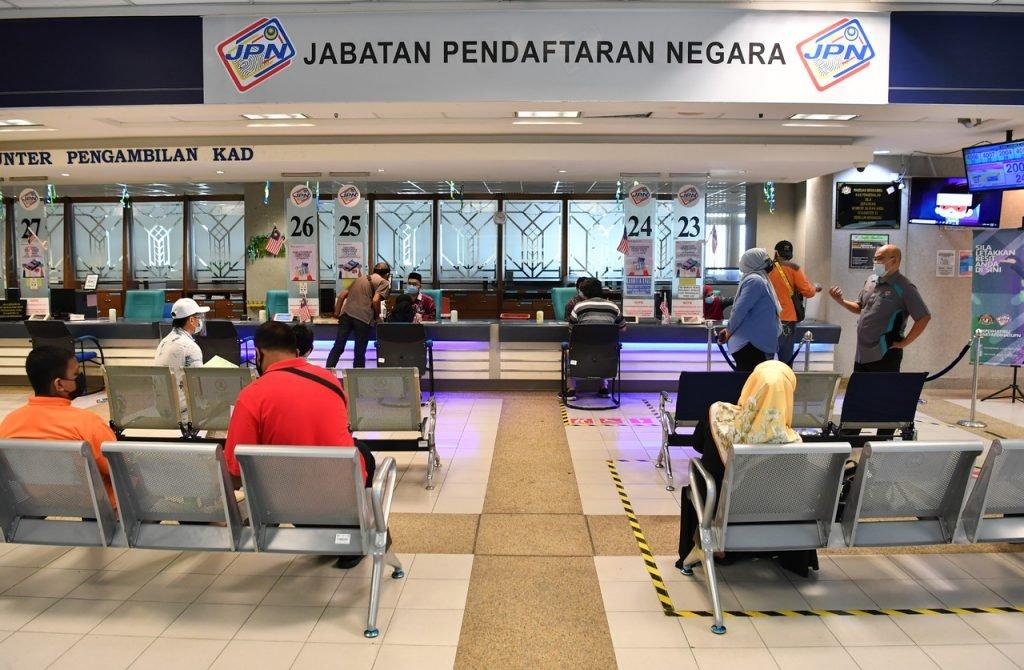June 22 verdict for govt’s appeal on equal citizenship
The judge says more time is needed for deliberation as the cases involved are important and of public interest.
Just In
The Court of Appeal has set June 22 for its verdict on the appeal by the government in seeking to overturn a lower court ruling that children born overseas to Malaysian women who are married to foreigners are entitled to automatic Malaysian citizenship.
Justice Kamaludin Md Said, who chaired a three-member panel, fixed the date after the counsels representing the respective parties in two citizenship cases completed their submissions before the court.
“We need more time to deliberate as the cases are important and of public interest,” he said.
Kamaludin, who presided with justices Azizah Nawawi and S Nantha Balan, heard the appeals of two cases together involving the Association of Family Support & Welfare Selangor & Kuala Lumpur (Family Frontiers) and six Malaysian women married to foreigners, as well as another case involving a woman born overseas to a Malaysian woman.
For the first case, the government, the home ministry and the National Registration Department (JPN) director-general are appealing against the decision of the High Court on Sept 9 last year recognising that the children of Malaysian women born overseas have the automatic right to be Malaysians.
As for the second case, Mahisha Sulaiha Abdul Majeed, who was born to a Malaysian mother and Indian national father in India, is appealing against the High Court’s dismissal of her suit on Aug 19, 2020, in which she sought declarations that she was entitled to Malaysian citizenship.
In the proceedings conducted online, senior federal counsel Liew Horng Bin representing the government in the first case argued that children born abroad to Malaysian women married to foreigners should not be given automatic Malaysian citizenship under Article 4 (1) of the Federal Constitution.
He said the only recourse was for them to apply to JPN to be registered as Malaysian citizens, as provided under Article 15 (2) of the Federal Constitution.
He said the High Court judge had rewritten the Federal Constitution in relation to the granting of citizenship to such children.
He said the use of the word “father” in Sections 1 (b) and 1 (c) of the Second Schedule, Part II of the Federal Constitution was deliberate and did not connote “mother”, adding that those provisions were not discriminatory.
The sections state that anyone born outside the country whose father is a Malaysian citizen is considered a citizen by default by operation of law.
High Court judge Datuk Akhtar Tahir, in his decision allowing the children born overseas to Malaysian women married to foreigners citizenship by operation of law, had held that the word “father” in Section 1 (b) must be read to include mothers.
He also ruled that Article 14 (1)(b) together with Section 1(b) of the Federal Constitution must be read in harmony with Article 8(2) of the Federal Constitution which prohibits gender-based discrimination.
Lawyer Gurdial Singh Nijar, who appeared for Family Frontiers and the six women, argued that the interpretation of the citizenship provisions cannot discriminate against a person born overseas on the mere fact that he or she was born to a Malaysian mother and not to a Malaysian father.
He said based on the present practice and interpretation of the law, children born abroad where the father is a Malaysian citizen married to a foreign wife are entitled to automatic Malaysian citizenship but children who are born overseas to a Malaysian mother who married a foreign husband are not.
Gurdial Singh said the interpretation of laws and adopted procedures and practices were discriminatory and in violation of his client’s constitutional rights under Article 8 of the Federal Constitution.
In their suit, among others, the women are seeking a court order for all relevant government agencies, including JPN, the immigration department and Malaysian embassies, to issue documents relating to citizenship including passports and identity cards to children born abroad to Malaysian women with foreign spouses.
The court also heard arguments made by lawyer Cyrus Das appearing for Mahisha and senior federal counsel Ahmad Hanir Hambaly@Arwi appearing for the JPN director-general, the home minister and the Malaysian government.
Subscribe to our newsletter
To be updated with all the latest news and analyses daily.
